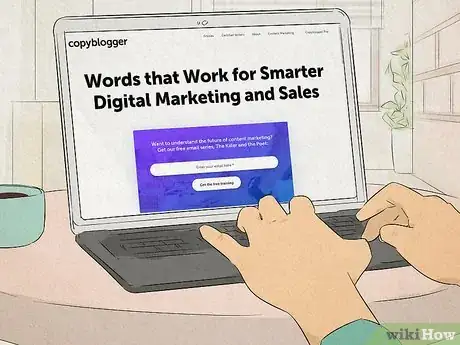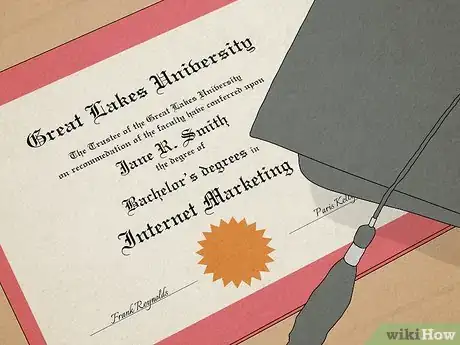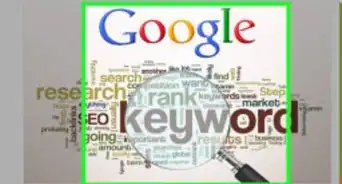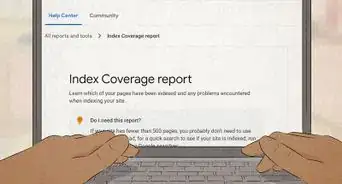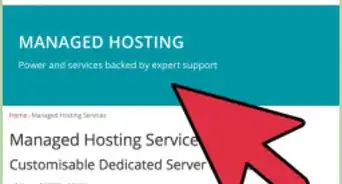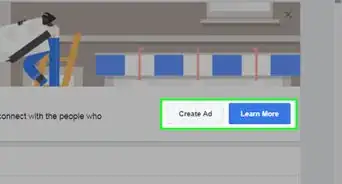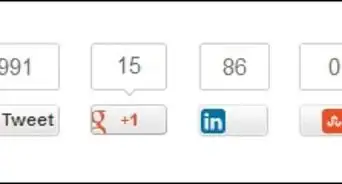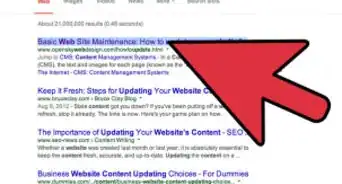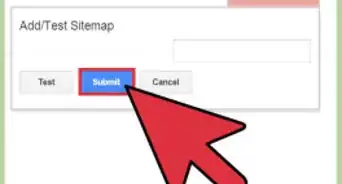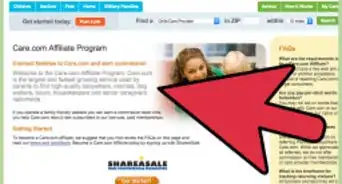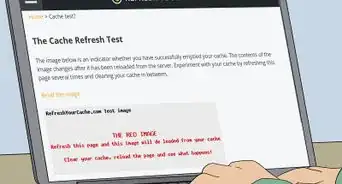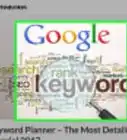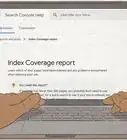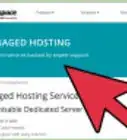This article was co-authored by Christine Michel Carter and by wikiHow staff writer, Janice Tieperman. Christine Michel Carter is a Global Marketing Expert, Best-Selling Author, and Strategy Consultant for Minority Woman Marketing, LLC. With over 13 years of experience, Christine specializes in strategic business and marketing consulting services including market analysis, organizational alignment, portfolio review, cultural accuracy, and brand and marketing review. She is also a speaker on millennial moms and black consumers. Christine holds a BS in Business Administration and Art History from Stevenson University. She is a leader in multicultural marketing strategy and has written over 100 articles views for several publications, including TIME and Forbes Women. Christine has worked with Fortune 500 clients such as Google, Walmart, and McDonald’s. She has been featured in The New York Times, BBC News, NBC, ABC, Fox, The Washington Post, Business Insider, and Today.
There are 16 references cited in this article, which can be found at the bottom of the page.
wikiHow marks an article as reader-approved once it receives enough positive feedback. In this case, 80% of readers who voted found the article helpful, earning it our reader-approved status.
This article has been viewed 300,565 times.
If you're trying to get into internet marketing, you might be feeling overwhelmed by all of the information on the subject that's out there. Don't worry! Internet marketing may seem confusing at first, but it's actually not that hard to learn and practice. This article will walk you through the different types of internet marketing you should be familiar so you have a solid foundation to build off of. We'll also show you how you can study and practice internet marketing on your own.
Steps
Types of Internet Marketing
-
1Search Engine Optimization (SEO): SEO involves fine-tuning your content so it’s more likely to pop up on different search engines. With SEO marketing, you’ll research popular keywords, or specific words and phrases that a person might use during their online search. SEO helps integrate these keywords into your online content, which helps your content stand out in search results. There's more to SEO than just keywords though—optimizing your website and publishing relevant, timely content are also important.[1]
- For instance, if you run a crafting blog, you might include phrases like “crochet stitches,” “crochet patterns,” or “free crochet patterns” in your blog post. You would want to do this organically, however, since spamming your content with keywords will be distracting for readers and won't improve your search ranking.
- To learn more about SEO, websites like the Google Webmaster Central Blog, Search Engine Journal, Search Engine Roundtable, and State of Digital are all great resources.
- Google Analytics, Google Webmaster Tools, Open Site Explorer, and Google Keyword Planner are free, useful resources that can help optimize your content.
-
2Pay per click advertising (PPC): PPC lets you market yourself on other web platforms. Using platforms like Google Ads, you can create customized online ads that will show up in search results. You pay the platform that's hosting your ads (like Google) whenever someone clicks on them.[2] With PPC, you set a budget for your ads, which can appear on a person’s tablet, phone or computer.[3]
- To learn more about pay per click advertising, check out blogs like Inside Google AdWords, WordStream, and PPC Hero—these are all great resources.
Advertisement -
3Social media marketing: Social media marketing is pretty much what it sounds like: marketing your business on different social media platforms, like Facebook, Twitter, and Instagram.[4] With social media marketing, you'll typically create a posting schedule so you're regularly posting new content and engaging with your followers.[5]
- In general, aim to dedicate 80% of your posts to non-promotional content (content that your followers will find interesting but isn't trying to sell them something), and the other 20% to promotional content. For the most part, people aren't looking to be sold to on social media, so you don't want to bombard them with too many advertisements. Non-promotional content is still good for your business—it increases your following and brand awareness.
- To learn more about social media marketing, check out blogs like Social Media Today, Social Media Examiner, and Social Media Lab.[6]
-
4Email Marketing: With email marketing, you encourage customers (or potential customers) to sign up for your mailing list with things like exclusive discounts and offers. Once you have a mailing list, you can start sending out routine promotional emails that let your subscribers know about your products and services, including any sales and exciting updates. These emails are a great way to engage with your customers, promote your business, and potentially inspire future loyalty.[7]
- Email marketing is very cheap and has the potential to reach a lot of different people.
- For example, you might send a seasonal email campaign to let your target audience know about an upcoming sale.
- MailChimp, Campaign Monitor, and VerticalResponse are all platforms you can use to manage your email marketing campaign.
-
5Content Marketing: Content marketing involves attracting customers to your website with high-quality, helpful content that's relevant to your business. Bringing people to your website with helpful content is a great way to increase brand awareness and persuade people to take action (like buying your product or service). The content you produce can include blog posts, infographics, videos, podcasts, and more.[8]
- For example, if your company sells pool products, you might post a series of blog posts that help readers troubleshoot and fix common pool issues. Within those posts, you could recommend specific products that readers might need and that your company sells.
- Convince and Convert, TopRank Blog, and Conversation Agent are great resources you can check out to learn more about content marketing.[9]
Extra Support
-
1Read articles on marketing blogs. Internet marketing is a very accessible field—in fact, plenty of professionals post their insights, tips, and tricks on their blogs. Set aside time throughout the week to scroll through different blog posts, which can help you learn the ropes of digital marketing.[10]
- HubSpot, Copy Blogger, Entrepreneur, Marketing Donut, and Digital Marketer are all great places to start.
-
2Listen to marketing podcasts. Bookmark a few different podcasts to listen to throughout the week. Programs like The #AskGaryVee Podcast Show, This Old Marketing, Social Business Engine, and Duct Tape Marketing are all excellent starting points in your audio journey.[11]
-
3Sign up for free, online marketing classes. Test out the internet marketing field with free courses, like the Google Online Marketing Challenge or WordStream’s PPC University.Other sites, like Inbound Digital Marketing Course Plus Official Certification and Social Media Quickstarter Digital Marketing Course are other great places to begin.[12]
- The Alison Free Diploma in E-Business is another helpful resource.
-
4Learn through experience. Create internet marketing campaigns for community groups, or look for unpaid opportunities that let you practice SEO, PPC, or other internet marketing styles. The best way to learn and feel confident with digital marketing is through live, practical application.[13]
-
5Enroll at a university with an internet marketing program. Some schools offer specific Bachelor’s degrees in Internet Marketing—this can set you up for success in a fundraising, public relations, or sales management career. Register at a local college, or search for online universities for more flexible schooling options.[14]
- Schools like Purdue University offer online degrees in Internet Marketing. Digital marketing and marketing programs are also great options.
- You don’t necessarily need a marketing degree to get a job in marketing. You just need to use your degree to get your foot in the door of a company’s marketing department.[15]
-
6Create a website if you run your own business. Social media is a great way to network and market yourself online, but it isn’t quite enough on its own. Develop a site that explains what your business does—this site doesn’t need to be super advanced, but it should work on phones and tablets. Having your own website will give you the opportunity to practice your internet marketing skills.[16]
- Platforms like Wix, Weebly, and Google Sites can help you develop a website.
Expert Q&A
Did you know you can get expert answers for this article?
Unlock expert answers by supporting wikiHow
-
QuestionHow do I set myself apart as an Internet marketer?
 Christine Michel CarterChristine Michel Carter is a Global Marketing Expert, Best-Selling Author, and Strategy Consultant for Minority Woman Marketing, LLC. With over 13 years of experience, Christine specializes in strategic business and marketing consulting services including market analysis, organizational alignment, portfolio review, cultural accuracy, and brand and marketing review. She is also a speaker on millennial moms and black consumers. Christine holds a BS in Business Administration and Art History from Stevenson University. She is a leader in multicultural marketing strategy and has written over 100 articles views for several publications, including TIME and Forbes Women. Christine has worked with Fortune 500 clients such as Google, Walmart, and McDonald’s. She has been featured in The New York Times, BBC News, NBC, ABC, Fox, The Washington Post, Business Insider, and Today.
Christine Michel CarterChristine Michel Carter is a Global Marketing Expert, Best-Selling Author, and Strategy Consultant for Minority Woman Marketing, LLC. With over 13 years of experience, Christine specializes in strategic business and marketing consulting services including market analysis, organizational alignment, portfolio review, cultural accuracy, and brand and marketing review. She is also a speaker on millennial moms and black consumers. Christine holds a BS in Business Administration and Art History from Stevenson University. She is a leader in multicultural marketing strategy and has written over 100 articles views for several publications, including TIME and Forbes Women. Christine has worked with Fortune 500 clients such as Google, Walmart, and McDonald’s. She has been featured in The New York Times, BBC News, NBC, ABC, Fox, The Washington Post, Business Insider, and Today.
Global Marketing Expert
-
QuestionHow can I become a professional marketing manager?
 Christine Michel CarterChristine Michel Carter is a Global Marketing Expert, Best-Selling Author, and Strategy Consultant for Minority Woman Marketing, LLC. With over 13 years of experience, Christine specializes in strategic business and marketing consulting services including market analysis, organizational alignment, portfolio review, cultural accuracy, and brand and marketing review. She is also a speaker on millennial moms and black consumers. Christine holds a BS in Business Administration and Art History from Stevenson University. She is a leader in multicultural marketing strategy and has written over 100 articles views for several publications, including TIME and Forbes Women. Christine has worked with Fortune 500 clients such as Google, Walmart, and McDonald’s. She has been featured in The New York Times, BBC News, NBC, ABC, Fox, The Washington Post, Business Insider, and Today.
Christine Michel CarterChristine Michel Carter is a Global Marketing Expert, Best-Selling Author, and Strategy Consultant for Minority Woman Marketing, LLC. With over 13 years of experience, Christine specializes in strategic business and marketing consulting services including market analysis, organizational alignment, portfolio review, cultural accuracy, and brand and marketing review. She is also a speaker on millennial moms and black consumers. Christine holds a BS in Business Administration and Art History from Stevenson University. She is a leader in multicultural marketing strategy and has written over 100 articles views for several publications, including TIME and Forbes Women. Christine has worked with Fortune 500 clients such as Google, Walmart, and McDonald’s. She has been featured in The New York Times, BBC News, NBC, ABC, Fox, The Washington Post, Business Insider, and Today.
Global Marketing Expert I recommend earning a bachelor’s degree, which does not necessarily have to be in marketing. You simply need to be able to leverage the degree to gain experience in an organization’s marketing department. Experience at the associate level is critical because, at this stage, you’ll learn how to read and interpret data.
I recommend earning a bachelor’s degree, which does not necessarily have to be in marketing. You simply need to be able to leverage the degree to gain experience in an organization’s marketing department. Experience at the associate level is critical because, at this stage, you’ll learn how to read and interpret data. -
QuestionI am interested in Internet marketing, but I don't have a clue on how to go about learning more. I can't afford to pay for any classes. So where do I look to get step-by-step instructions?Google whatever you want to learn. There are plenty step-by-step tutorials on EVERYTHING. There are even YouTube videos on pretty much everything. Try things, and you'll learn what works and what's crap.
References
- ↑ https://digitalmarketinginstitute.com/blog/what-is-seo-and-why-is-it-important
- ↑ https://www.searchenginejournal.com/ppc-guide/what-is-ppc-paid-search/
- ↑ https://digitalmarketinginstitute.com/blog/beginners-guide-googles-pay-per-click-advertising
- ↑ https://learn.sba.gov/learning-center-market/social-media-marketing
- ↑ https://www.entrepreneur.com/article/217578
- ↑ https://www.forbes.com/sites/lilachbullock/2019/01/28/5-social-media-blogs-that-you-need-to-know-about-in-2019/?sh=7afd99ca5b72
- ↑ https://crossware.co.nz/blog/email-marketing-what-is-it-why-do-it-and-how/
- ↑ https://www.forbes.com/sites/joshsteimle/2014/09/19/what-is-content-marketing/?sh=3372f6c110b9
- ↑ https://contentmarketinginstitute.com/top-content-marketing-blogs/
- ↑ https://medium.com/@gurpreetdhillon/13-best-blogs-to-learn-internet-marketing-strategically-d84a8cabba34
- ↑ https://digitalmarketinginstitute.com/blog/5-digital-marketing-podcasts-you-need-to-listen-to-right-now
- ↑ https://www.inc.com/larry-kim/top-5-free-online-courses-for-digital-marketers.html
- ↑ https://www.onlinemarketinginstitute.org/blog/2017/11/10-tips-start-career-digital-marketing/
- ↑ https://www.bestcolleges.com/features/internet-marketing-degree-programs/
- ↑ Christine Michel Carter. Global Marketing Expert. Expert Interview. 30 September 2020.
- ↑ https://smallbiztrends.com/2019/03/digital-marketing-101.html
About This Article
The easiest way to understand internet marketing is to do an online search to learn about basic concepts like SEO optimization, market analysis, and marketing strategy. Once you’re familiar with these, you can begin making data reports using Google Analytics software or a similar program. If you’re looking for a more in-depth knowledge, consider getting a marketing degree or taking an online marketing class. To learn how to develop a marketing strategy, read on!





